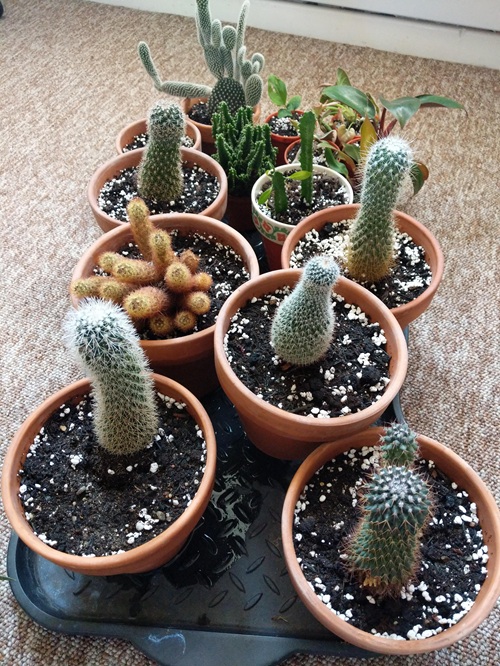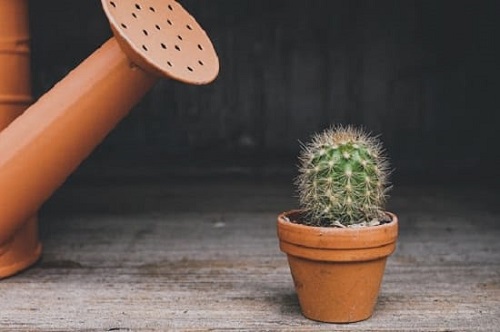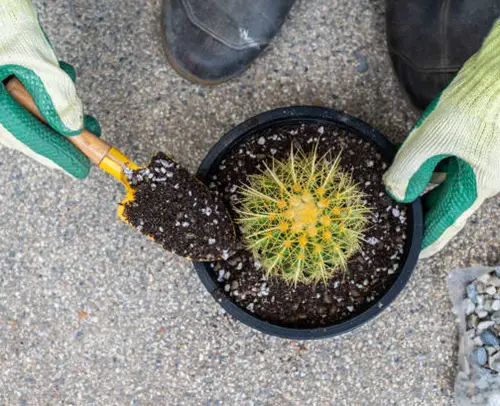Are you finding it hard to choose the best fertilizer for your cactus? Don’t worry, we have got you covered!

Although Cactus is a low-maintenance plant, it requires occasional fertilizer to get the best nutrients and thrive. Using the correct fertilizer and method is the key to boosting healthy growth and bright color. So, without further waiting, let us learn about fertilizing your cactus plant.
Nutrient Requirements of a Cactus

Cacti may be tough, but they are not immune to nutrient cravings—especially if you want them to grow faster and bloom beautifully. Your cacti will require nitrogen as it plays a crucial role in promoting leaf and stem development, while Phosphorus is essential for strong root formation and plays a key part in stimulating flower production.
Potassium is equally important to supports the overall health. It is important to strengthen its structure and enhancing disease resistance. A well-balanced mix of these nutrients ensures your cactus stays sturdy and ready to thrive in its environment.
Is It Necessary to Fertilize a Cactus?
Is it absolutely necessary to fertilize a cactus? Not really. Cacti are tough survivors that can endure nutrient-poor conditions. However, feeding them occasionally can boost their growth, enhance their color, and even encourage flowering. While outdoor cacti can often extract what they need from the soil, indoor cacti rely entirely on you for nutrients, making fertilization more beneficial.
Tip: After fertilizing an indoor cactus, place it in bright sunlight for a few days. This helps it efficiently absorb nutrients while preventing overstretching in low-light conditions.
Best Fertilizer For Cactus
Cacti are light feeders, meaning they don’t require frequent or heavy fertilization to thrive. However, occasional feeding can make a noticeable difference in their growth, color, and flowering potential.
When choosing a fertilizer, avoid high-nitrogen formulas, as excess nitrogen promotes weak, overly soft growth that makes the plant more susceptible to rot and pests. Instead, you should opt for a balanced, water-soluble fertilizer with low nitrogen content. A formula such as 10-10-10 or 5-10-10 blends is perfect for providing essential phosphorus and potassium for strong roots and beautiful blooms.
Always dilute the fertilizer to the quarter before applying it to prevent root burn. Feeding once every 60 days during the active growing season (spring and summer) is sufficient, while dormant winter months require no fertilization.
How to Fertilize a Cactus?
Since cacti are slow-growing, fertilizing them moderately during their active growing season (spring and summer). The best method is to dilute a balanced fertilizer (10-10-10 or 5-10-10) to quarter or half-strength in a gallon (3-4 liters) of water. Ensure to stir well to ensure even distribution.
You can use this nutrient-rich solution to water the cactus until the soil is moist, but ensure not to make it too soggy as excess moisture can lead to root rot. When feeding, always apply fertilizer to damp soil rather than dry soil to prevent root shock.
Tip: Store any remaining fertilizer in a sealed container and shake before reuse to maintain effectiveness.
When to Fertilize a Cactus?

The basic thumb rule to fertilize a cactus is at the very beginning or in its growing season.
Spring and summer are the prime growing seasons when cacti actively produce new stems and, in some cases, flowers. This is the ideal time to fertilize, and you should go for fertilizing during this time while using the method explained above. For flowering varieties, you can use a phosphorus-rich fertilizer that can encourage more abundant blooms.
During winter, cacti enter dormancy and slow their metabolism to conserve energy. Fertilizing during this period can weaken the plant by forcing unnecessary growth. So stop fertilizing and cut back on watering.
Organic Alternatives
Chemical fertilizers aren’t the only way to nourish your cactus. You can go for organic options that provide a slow, steady release of nutrients and enrich the soil naturally over time. Manure, compost, fish emulsion, soybean meal, cottonseed meal, and bone meal are excellent choices for your cactus. Each of these offers essential nutrients like nitrogen, phosphorus, and potassium in a balanced, plant-friendly form.
These organic fertilizers improve soil health, encourage steady growth, and reduce the risk of overfeeding, which makes them a great alternative for those who prefer a gentler, eco-friendly approach to cactus care.



I was told that you can make your own compost by saving mowed grass and it turns into compose. It doesn’t sound quite right to me. Is it?